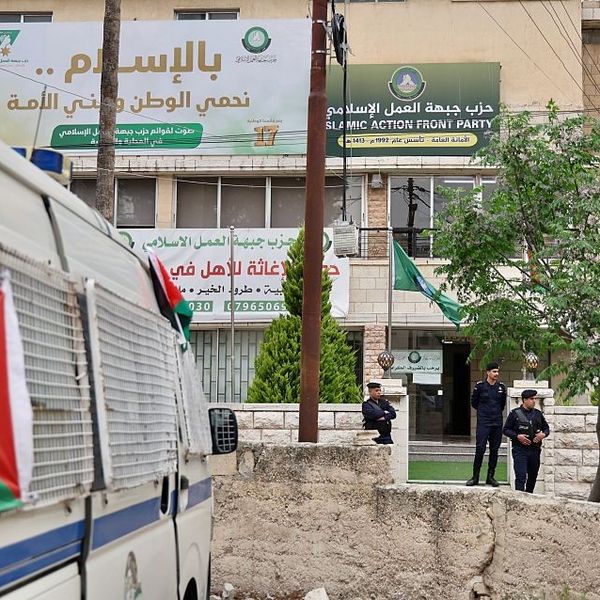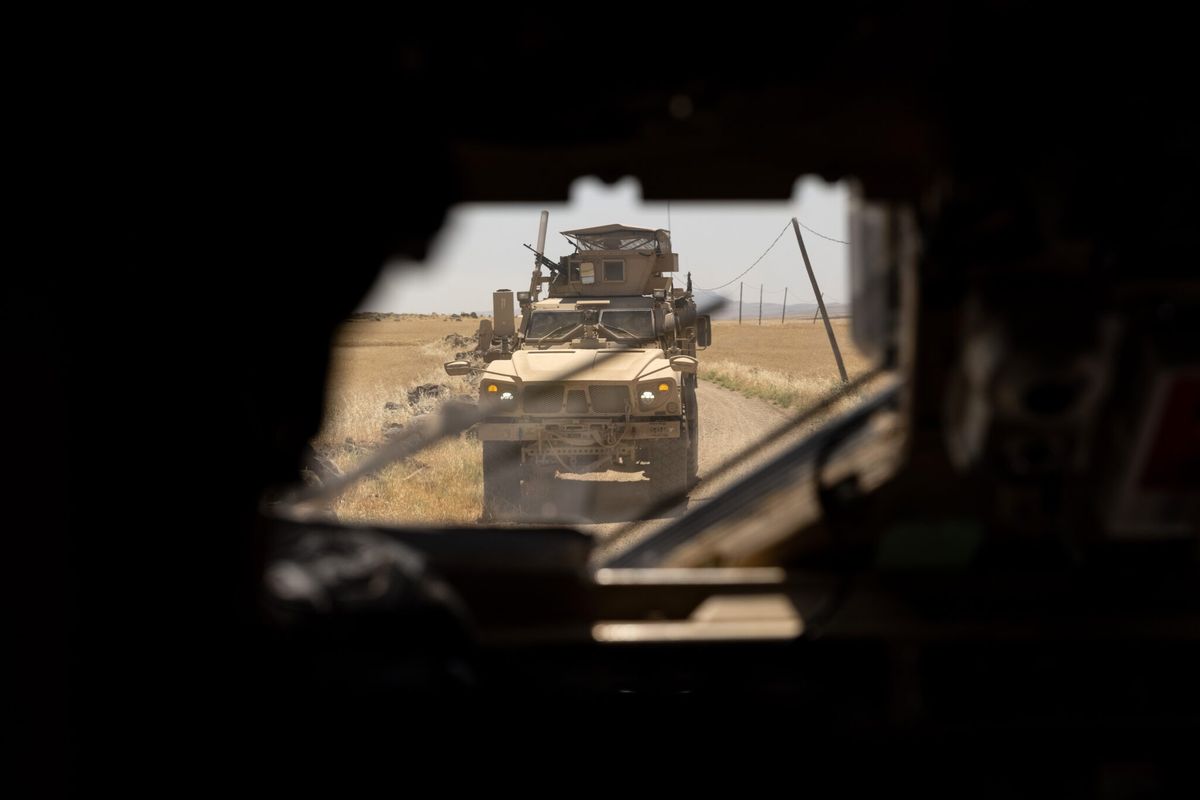In the coming months, and possibly weeks, the Iraqi Security Forces, with the help of a diverse group of fighters spanning the Iraqi political spectrum, will raise the Iraqi flag atop the Ninevah Provincial Government Center in Mosul. This symbolic gesture will signal to Iraq, and to the world, that the Iraqi capital of the evil and perverse Islamic State (ISIL) has fallen, and Iraq’s most treasured city—next only to Baghdad—has been liberated.
The Iraqi government will celebrate the moment, while acknowledging that there remains much work to be done to rebuild and reintegrate Mosul into the country. Analysts will warn of the dangers of the post-conflict period in Mosul, with an eye to the mistakes that the U.S.-led coalition made in Baghdad after liberating that city from Saddam’s rule in 2003.
Post-ISIL Iraq’s prospects are, sadly, grim, with multiple factors converging and amplifying one another to create significant obstacles to the country getting on a track toward stability. These factors include atrocities carried out by the Popular Mobilization Forces (PMFs, or hashid al-shaabi), predominantly Shia militias backed by Iran that have played a heavy role in the anti-ISIL fight; the prospects of another major Sunni uprising; Kurdish tensions with the central government; economics; infrastructure; and environmental devastation.
The aftermath of Mosul’s fall
The question of who takes the ground that ISIL loses as Mosul slips from its grip is paramount. Indeed, this question has already generated great friction within the anti-ISIL “coalition” prior to the advance on Mosul. Turkey has frequently warned of the consequences of majority-Sunni Mosul falling to Shia militias. Shiite-dominated Baghdad has been suspicious of Kurdish ambitions in the Kurdish and Christian areas in the outskirts of Mosul. Many Sunni Arab leaders from Mosul have warned of Kurdish, Shiite, and Turkish ambitions in Mosul once ISIS loses ground. Indeed, Turkey is right about the atrocities that have been committed by PMFs when they retook Sunni-majority territory from ISIL, spurred on by the PMFs’ sectarianism and the ease with which such excesses can be justified as retaliation for the hell that ISIL wrought.
Turkish troops with their eye on Mosul have refused to leave Iraqi soil despite Iraq’s request for them to get out. It is possible that after the fall of Mosul, conflict between the PMFs and Turkey could spiral out of control. Turkey has said that it won’t allow the religious demographics of Mosul to be changed, and the PMFs have said that they are willing to fight Turkey in the same way they fight ISIL.
With no exaggeration, these tensions could be the first rumblings of another major armed conflict on Iraqi soil. A flare-up between Turkey and the PMFs could in turn accentuate tensions between Turkey and Iraq’s central government, as well as between Iraq’s central government and the Kurdish Regional Government (KRG).
PMF atrocities
When the PMFs entered Tikrit after ISIS was pushed out in March and April 2015, there were reports and videos of extrajudicial killings, looting, detention of civilians, sectarian cleansing, torture, and abuse. PMF looting and retaliation in Tikrit reinforced Sunni fears of PMFs in operations to liberate majority-Sunni Ramadi and Fallujah in January and February 2016.
Due to these fears, and the importance of having local Sunni buy-in for the operations, Baghdad co-opted local Sunni tribal fighters into the PMF and restricted the activity of Shia PMFs in its major 2016 operations. This to some extent ameliorated, though did not eliminate, Sunni concerns in advance of these operations. Baghdad was able to accomplish this shift in the PMF structure for the Ramadi and Fallujah campaigns in part due to the legacy of the Anbar Awakening (Sahwa), and the assumption that a more homogeneous Anbar required local fighters to liberate the cities.
But the demographic differences in Ninevah—with a greater diversity of religious and ethnic minorities—means a more heterogeneous map of stakeholders, who may be more willing to fight on behalf of their constituencies. There is a good reason why Sunni elites in Ninevah unanimously don’t want the PMFs to enter their territory, as PMF atrocities have already created lasting grievances. Even more could be created following Mosul’s fall, not to mention major humanitarian and moral consequences.
Chances of another major Sunni uprising
Sunni disenfranchisement following the defeat of al Qaeda in Iraq was an essential driver of ISIL’s rise. Even as ISIL’s grip on its territorial holdings in Iraq slips, all the ingredients for another eventual Sunni uprising against Baghdad are in place.
At the forefront of current Sunni Arab grievances is Baghdad’s reluctance to allow Sunni Arabs to be in charge of security in their own areas. While Shia and Kurdish militias are sanctioned by the Iraqi government, there is a dearth of real state-sanctioned Sunni Arab militias, especially in contested areas such as in Ninevah. The U.S.-initiated Sons of Iraq program that began in 2007 during the Sunni Awakening was the closest thing Iraq has had to a state-sanctioned, Sunni Arab militia. But, though the Anbar Awakening was robust enough to help Baghdad shift the PMFs’ composition before the Ramadi and Fallujah campaigns, this was not the case nationally. The program was not fully adopted by the Iraqi government, and Baghdad abandoned it after U.S. forces left Iraq in 2011. In contrast, Shia militias are often led and supported by Iraqi Shia politicians with strong connections to Iran. This Sunni grievance is compounded by the aforementioned atrocities the PMFs have carried out against Sunni civilians as they retook territory from ISIL.
Other factors that could drive another major Sunni uprising should also be carefully considered. Will there be significant Sunni representation in Iraq’s central government in post-ISIL Iraq? Who will govern Ninevah after ISIL loses ground? Iraqi Sunnis’ view that their government is increasingly controlled by Iran, as the fight against ISIL has made Iran more influential in the Iraqi political sphere. If Baghdad is perceived as using the liberation of Mosul as a means of extending its political influence in the majority-Sunni city by installing Shia loyalists to govern post-ISIL Mosul, the flame of another major Sunni uprising against Baghdad may find its spark in this issue.
Overall, it is unlikely that Sunni elites will reconcile themselves to being part of a rump state that is under growing Iranian influence. One doesn’t have to be a jihadist to find these prospects unappealing. Sunnis face the possibility of having their status as second-class citizens in the post-Saddam order further entrenched.
Kurdish independence
Though KRG now has de facto independence from Iraq’s central government, Turkey’s recent actions in northern Iraq may make the KRG’s de jure independence inevitable.
The KRG supports Turkey’s military presence in northern Iraq, at the same time that Iraq has requested that Turkish troops leave. Turkey has deftly catered to both Kurdish and Sunni Arab elite interests in Mosul to ensure its place in the liberation of the city, at the expense of Shia-led Baghdad.
The symbolic erosion of Iraqi sovereignty and the ascendance of the KRG as an independent political entity cannot be overstated. A domestic analogue would be the Mexican army entering Texas at the request of Gov. Greg Abbott, and the Obama administration requesting that Mexican troops withdraw from American soil. If Gov. Abbott in turn disagreed with the administration and asked Mexican troops to stay, that would be a powerful rebuke of the federal government by a state governor. In Iraq, regional officials in the KRG are negotiating with a foreign power and asking foreign troops to remain in their region, despite the central government’s publicly-expressed disagreement.
Gaining de jure independence would make a difference for the KRG. Its lack of de jure independence inhibits its ability to enter into contracts for the sale of oil from its territory and also makes it more difficult for KRG to receive military and other forms of foreign assistance. If KRG gained independence, Baghdad’s loss of revenue from its oil would further damage an already battered Iraqi economy.
The post-ISIL economy
The Iraqi economy, particularly with low oil prices, is in terrible shape. The mob violence we have seen recently in Baghdad is the kind of thing that makes international investors and creditors extremely nervous. Only Iran is showing serious interest in entering the Iraqi economy at present. Nobody wants to invest in something today that can be stormed and looted tomorrow.
It does not appear that Iraq’s central government has put together any kind of substantive reconstruction process for Ramadi, Fallujah, or Tikrit. Rebuilding Sunni cities is not a priority for Baghdad, not only because of the lack of political advantage Baghdad sees in doing so: without a stable peace in Sunni areas, Iraq would be pouring money into an edifice erected on quicksand.
All of this, in turn, is a recipe for a lot of discontented military-age males.
Infrastructure
Iraq’s infrastructure has been poorly maintained, as the government has been in survival mode and battling an existential threat since 2014. Everything has gone into its war budget, with over 20 percent of the budget devoted to efforts to defeat ISIL. Thus Baghdad has even neglected much-needed infrastructure projects in majority-Shia areas. This has increased Shia grievances and fired the imagination of Shia protestors, who immediately blame the Iraqi government for corruption and incompetence.
In contrast, KRG’s infrastructure has been relatively untouched by the fight against ISIL. This will be another driver of Kurdish independence: A lot of national-level spending will be poured into infrastructure, which will disproportionately benefit the non-KRG regions.
Environment
ISIL has been a blight on Iraq’s natural environment, laying waste to crops, oil wells, and factories. Many internally-displaced persons will not return to their farmlands—although some groups who are helped by outside private aid donations, such as the Yazidis and Ninevah’s Christians, will be in a better position to return to their farms. In Sunni areas, there is an opening for Islamist-leaning—and, sometimes, jihadist-leaning—NGOs to shoulder this burden.
The fate of post-ISIL Iraq
In short, Iraq’s post-ISIL future is likely to heap bad news on top of a situation that is already bleak.
The aftermath of Mosul’s fall could be the catalyst for Kurdish independence. It could be the catalyst for a new Sunni insurgency that ends with an autonomous Sunni Arab state and the redrawing of Iraq’s borders. It could also—in the most optimistic of scenarios—be the catalyst for much-needed reconciliation and a national dialogue about a future united but decentralized Iraqi government.
But the liberation of Mosul is more than just raising the flag atop the provincial government center. Full liberation will come when Mosul is governed by a universally-recognized legitimate government and has capable and trusted security and law enforcement forces largely drawn from the local population.
As much as the international community can try to shape and influence the Iraqi government in how it deals in the aftermath of raising that Iraqi flag, the responsibility and ownership of that aftermath is mainly in Baghdad’s hands. This will be Baghdad’s opportunity to show Iraq and the world the type of future that is in store for this country with a long history of mistakes.















